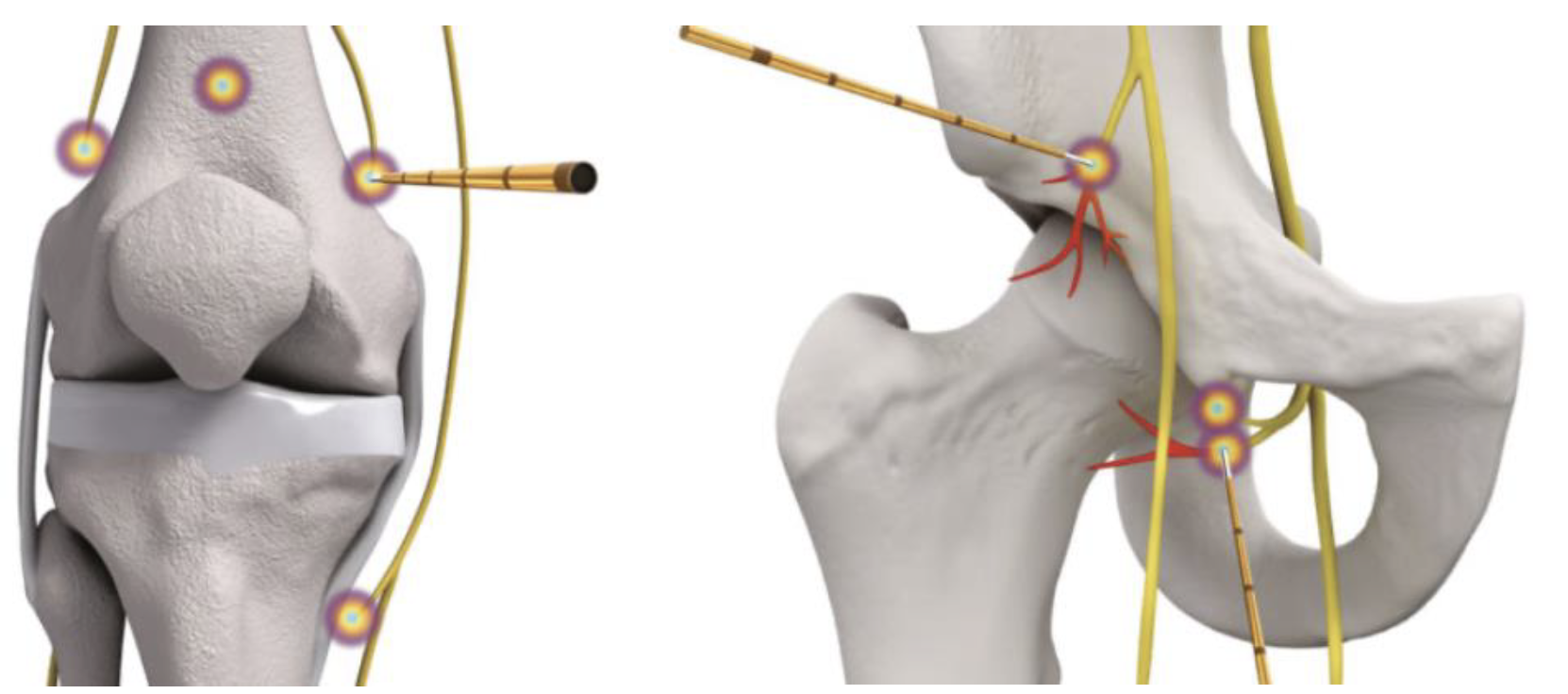What is radiofrequency ablation?
Radiofrequency ablation (RF or RFA) is a procedure to take away the pain generating nerve fibers from your joint. It involves selectively targetting the pain nerves, and stopping them from sending pain signals to your brain, so that you do not experience pain. It involves inserting fine needles into areas around your joint under x ray guidance and then heating the region with cooled radiofrequency waves, which stop the nerves from working.
What conditions can Radiofrequency treat?
Radiofrequency ablation can treat hip and knee pain which is due to arthritis or other problems, which is either not severe enough to warrant invasive surgery, or if you have had surgery, but still have residual pain. Typical conditions treated include:
- Knee pain after knee replacement
- Knee pain/arthritis not bad enough for a knee replacement
- Hip pain after hip replacement
- Hip pain due to labral tears/arthritis not bad enough for surgery
How is Radiofrequency Ablation Performed?
Once you are asleep fine needles are inserted into specific areas around your joint under x-ray control to target specific nerves which supply the joint. These nerve supply sensation to the joint only, and they are tested by sending electrical signals through the needle. Once this is confirmed, a specific radiofrequency pulsation is used to heat the nerve, and prevent it from working, thereby stopping it from sending pain signals.
The procedure takes between 20-45minutes to complete.

Radiofrequency nerve targets around the hip and knee (above)
How expensive is radiofrequency ablation?
The cost of RF ablation is normally covered by your health insurance, however there may be a small gap fee which is applicable, depending upon your health insurance.
Rehabilitation after Radiofrequency
You will be discharged on the day of your surgery, and small waterproof dressings cover the needle entry sites. You may have discomfort post operatively, and you will be given pain relief to go home with. You can normally drive within 48hrs of the procedure.
The full effect of the denervation procedure takes 4-6weeks to have maximal effect.
Most patients have 70-80% relief of their pain, but as it does not treat the underlying pathology, often the pain may return in 2-3yrs and you may require further treatment.
If you would like to see if you are a candidate for radiofrequency denervation, please contact Dr Slattery for an appointment.

Dr David Slattery
FRACS MBBS (Hons) LLB FAOrthA
Dr David Slattery is an orthopaedic surgeon based in Melbourne with over 10 years of experience, with a special focus on hip and knee joint preservation and replacement. With qualifications in both medicine and law, he brings a unique and comprehensive approach to patient care. His surgical techniques are minimally invasive and evidence-based, designed to reduce pain and enhance recovery.
Trained in leading institutions across Europe and the USA, Dr Slattery offers advanced treatments for a wide range of joint conditions. He is deeply committed to patient outcomes and takes pride in tailoring treatment plans to each individual. Whether you’re an athlete or seeking relief from chronic joint pain, his goal is to restore function and improve your quality of life.

